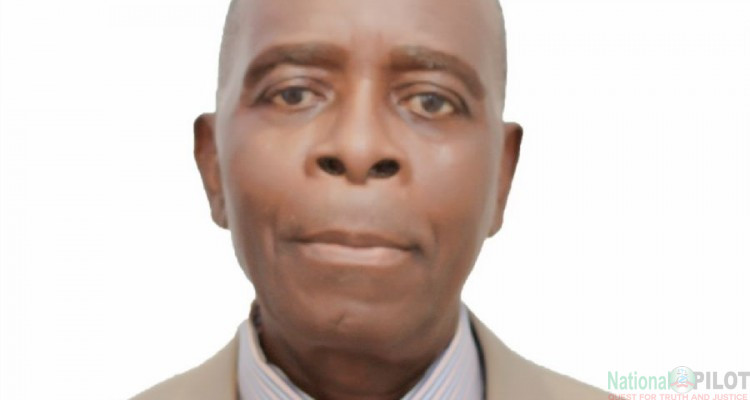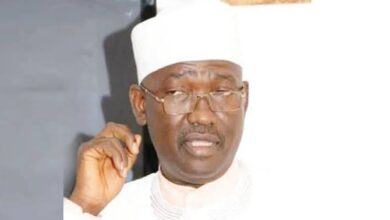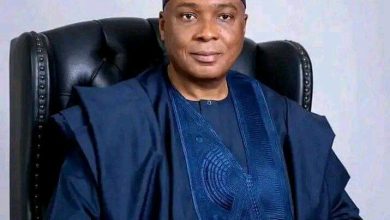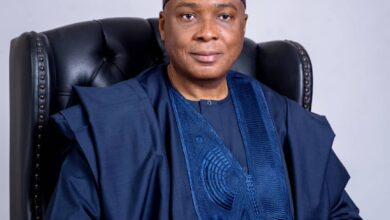Hunger in the Land: Your Vote is Worth One ‘Akpu’

By Josef Omorotionmwan
Yes, there is hunger in the land. And there is a direct correlation between hunger and mismanagement. Everywhere we go, we are told to our faces that we are hungry people. The thing, though, is that if the story of hunger comes around success, we may simply gloss over it.
Recently, we beat the US to its own game – the game of basketball. Naturally, that was a good source of joy for our people in the US. As they were rejoicing, some Americans who did not take kindly to being beaten to their own game could be heard saying to them, “you may be happy here but your people are hungry at home”!Again, the joy of victory and the agony of defect, who can wish them away?
This hunger in Africa is more in some parts than in others. Even at the edge of doom, some would rather not advertise their poverty.
There is a video currently trending on social media. The video is from Ghana. The Ghanaian politician had an encounter with the youths. In the end, the politician presented to the youths, the 50-kilogram bags of rice he had brought for them.
A storm of indignation burst forth. Not only did the youths reject the bags of rice, you also needed to see how they were throwing those bags of rice back into the pick-up van in which the politician brought them shouting, “we want jobs, not rice”! The politician left in shame! The youths had demonstrated that they were way ahead of him in civilization.
In Nigeria, the opposite would have been the case. Our youths would have grabbed the rice and in the presence of the politician they would have started fighting over the sharing.
Again, who is to blame? That’s how our politicians want it – the youth and, indeed, the electorate should be permanently subjugated and kept hungry so as not to have minds of their own. They must be kept so hungry that when you take the campaign to their domain, they will not be listening to your message. Instead, they will be just interested in what you have brought. Like in the fashion of the prostitute, “money na hand, back na ground”.
Nigeria is one place where vote buying can be officially institutionalized in the name of welfare; and we are loudest in speaking against vote-buying. Most elections are not rigged on the day of voting but constructively in everything we do or fail to do.
While the Ghanaian electorate is rejecting your rice and asking you to give him job instead, the Nigerian electorate is running after you for “tailor money”, “Trader money”, “cigar money”, all in the range of N2000 – which add no value to your lives! – plus the direct vote-buying around the eve of election!
We hear they are even planning to step down the transformer. As rice becomes more expensive, they will soon be offering you a cheaper alternative – Santana. At the end of campaigning, they will offer you two wraps of Santana which is less than a naira and ask you to go and vote. That’s how cheap it will become! They now do everything with impunity.
Enter the senate President, Senator Ahmed Ibrahim Lawan: We are faced here with the classic case of the pounded yam. If you hide to pound it, it will either not draw or it will not be smooth.
Where there is doubt, there is liberty, and the moment the stage becomes less than transparent, speculation blossoms. Lawan is a profound academia and in the best of times, a smooth operator. Latterly, his math’s have not been adding up. Look at his Quadratic Equation of 28 unknown.
In putting the question on the controversial clause 15(2) of the 2021 Electoral Amendment Bill, he announced that 52 senators voted nay; 28 voted Aye; and 28 others who were on essential duty somewhere also voted – giving a total of 108.
Since when did any legislature, anywhere in the world, start accepting absentee votes in the chamber? Could it be that those 28 senators who were on essential duty somewhere transmitted their votes to him electronically? If so, how did they vote? Were they Aye or Nay votes? A division in the legislature is meant to secure a permanent record of how each legislator voted on a particular issue.
A presiding officer on top of his elements would have sought to expunge that ludicrous record. What would have made sense would be 52 Nays; 28 Ayes; and 28 Abstentions.
That would have also been nearer the probability: 52 Nays; and 56 Ayes, which was not good for their purpose. Immediately they observed this in their private session, they quickly arranged for some of them to withdraw to the toilet for as long as the voting lasted! What a child’s play in men’s hall of fame!
When a dog bites a man, it is no news but if a man bites a dog, it is big news. It is not strange that Nigeria politician spend huge money. What is strange is that in the course of doing their thing, they deposit lots of headache and heartache on society.
Ordinarily, in a situation where we lack enough wisdom to do, wisdom should consist in not doing at all. Why are we now attempting to regulate what we cannot control? Why are we dabbling into the regulation of the cost of running for office by politicians? It is undermining of faith and casts a big question mark on our system for the National Assembly to set a spending limit of say N1000 on an item only for you to look slightly aside and see Nigerians spending N5000 openly on that same item. In the particular case of the presidency, for instance, we are limiting the presidential candidates to a maximum of N15billion. Who will be keeping the books? As humongous as that amount appears, is it not an open secret that some aspirants spend ten times that amount on the eve of their primary elections? Who will keep the books on what happens behind the doors in those hotel rooms, particularly in the face of the dollarization of the expenses of the senior contestants?
Is it also not an open secret that no serious political party, particularly the major ones will go for an election without providing logistics for election officials, security (official and unofficial) throughout the length and breadth of this country? Who is keeping the books? In fact, the election expenses are what the candidates say they are! Come on!
In the foregoing, the Ghanaian youths are aware that in Abraham Maslow’s HIERARCHY OF HUMAN NEEDS, food ranks quite high, coming a close second to the air we breathe. But to them, the Bible is also right that there is no food for the lazy; and, therefore, the source of food is also important.
The adult that consistently looks up to the politician for a hand-out of food is akin to the adult who still sleeps at the back of his mother at night. He may even sometimes wet the bed and expect the mother to clean up.
Generally, the youths do not need your food. Rather, you should teach them to produce their own food. Don’t give them fish but teach them to catch their own fish. That is the path that leads to growth and development; and the path to independence.
For the Nigerian politician, it is not always smart to be smart. You have a duty to show the youths the right path. It will be risky to leave them to discover it all by themselves!
Shall we return to Victor Hugo (1802 – 1885)? “Nothing beats an idea whose time has come”. Coming at this time, that precisely is what the outburst of the Ghanaian youths provide. Change begins from here!
Omorotionmwan, a public affairs commentator, writes via metrowatchonline.com





